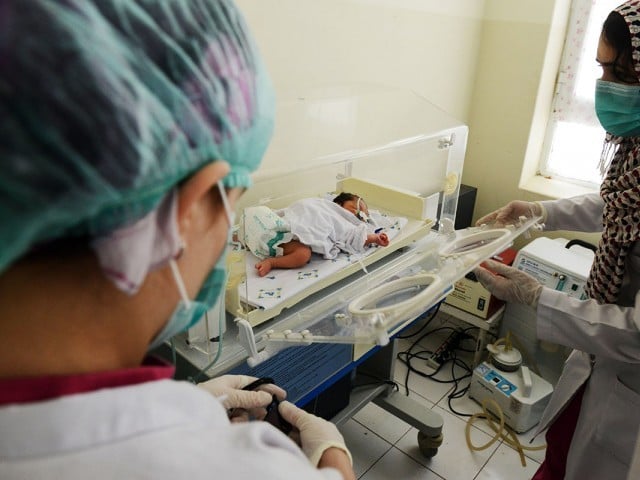
Since the training programme began at one of these facilities, Community Midwifery School, in 2008, only two women have gone back to work for their communities, pointed out the school's vice-principal Farhat Khan. She felt this was because of a lack of funds and support from the Sindh government.
These five community midwifery schools in Karachi fall under the Karachi Metropolitan Corporation (KMC). These schools give admissions to students of ages 18 to 40 after they have completed Matriculation. Their purpose is to train midwives who can go and work in their respective communities. But since they are hardly paid salaries on time or given proper equipment, most of the students end up joining private facilities.

The government is supposed to pay these graduates Rs3,500 as stipend every month but, according to the medical superintendent at Gizri Maternity Hospital, Dr Nazima Asad, they have not been paid regularly for the past 10 months. The community Midwifery School is part of the 60-bed Gizri Maternity Hospital that was built in 1994.
"There is no use of this school because the girls don't give any benefits to the community," said Khan. "The government should provide a basic setup and a labour room so that they can work in their communities."
Dr Asad concurred. "These girls come from poor families," she said. "They don't have the money to set up their own clinics." She added, however, that these schools were serving a wider purpose of empowering these women economically. The Association of Mothers and Newborns and the Rotary Club of Karachi Cosmopolitan helps the school by donating hospital equipments, computers and conducting trainings for professionals to further train the midwives.
"Our file has now been forwarded [to the relevant department] for payment [to be released]," said Dr Asad, adding that they have been paying stipends to the students with the help of non-governmental organisations.
To deal with the problem of students choosing private facilities, KMC Medical and Health Services department head Salma Kausar said they are trying to introduce a contract, which will make it mandatory for the students to serve at least five or 10 years working for their community before they can join private hospitals.
"I will soon call a meeting of the five schools to take these measures," she said. Kausar explained that the midwives' stipends are delayed because of the financial crisis within the KMC. "Even my own salary comes late," she said.
Published in The Express Tribune, May 13th, 2015.



1732263441-0/BeFunky-collage-(81)1732263441-0-165x106.webp)
1732263755-0/musk-(3)1732263755-0-165x106.webp)












COMMENTS
Comments are moderated and generally will be posted if they are on-topic and not abusive.
For more information, please see our Comments FAQ